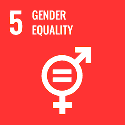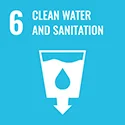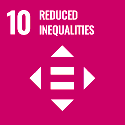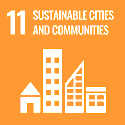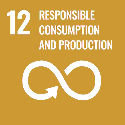Solar Clean Water
Social Business
Using solar technology to produce clean water while training high school students in entrepreneurship to setup a micro-business and give students practical skills while generating a small income for the school.
Through partnership with Nexsis, a leading producer of cost-effective clean technology in Australia, Dana Asia has designed a model that uses innovative solar panels to produce clean water and electricity at a high school in rural Cambodia.
The project is designed as a learning and micro-business opportunity for rural high school students to learn entrepreneurship skills and basic business management, as well as environmental aspects like the importance of reducing reliance on single-use plastics. The water produced by the panels can be sold at a low cost to the community, and income generated can be used by the school to fund development.
Climate change is making weather extremes more evident, with periods of drought occuring more and more often in Cambodia. For rural families relying on well water, when the well dries up in dry season their only alternative is to purchase bottled water. This is both unaffordable for poor families and produces unnecessary plastic waste. The water social business produces a year-round supply of clean drinking water which can be purchased at very affordable prices, reducing household expenditure and plastic consumption.
Why Clean Solar Water?
Provide entrepreneurship training and hands-on experience running a microbusiness for rural students.
Produce a ready supply of clean drinking water in highly impoverished rural communities that rely on well water.
Reduce the community’s plastic bottle usage by promoting refillable containers to collect water.
Clean Solar Water Impact
How do we do it?
A training program in entrepreneurship is delivered to a group of students, and a team is formed to gain hands-on experience running a microbusiness.
Solar panels produce clean water and it is made available to the school and community as a year-round sustainable source of clean drinking water.
Working with the school to identify a suitable area, solar panels are set up with a bottling centre to produce and bottle water for community members in refillable containers.
Clean Solar Water Success Stories
We have successfully implemented the clean solar water model in rural Cambodia.
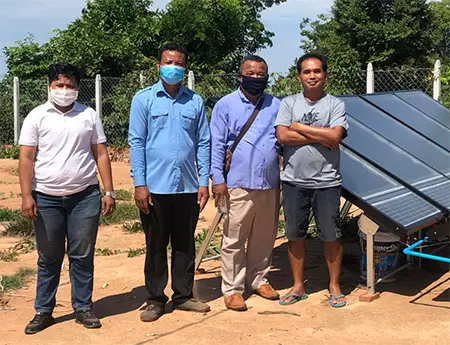
Turning sunshine into clean water in Cambodia
In partnership with solar panel producer Nexsis Australia and with funding from the Rotary Club of Gawler Light, Dana…
Do you want to make an impact through this social business model?
US$6,000
funds the setup of panels that can produce clean water and electricity at a rural school or community.

